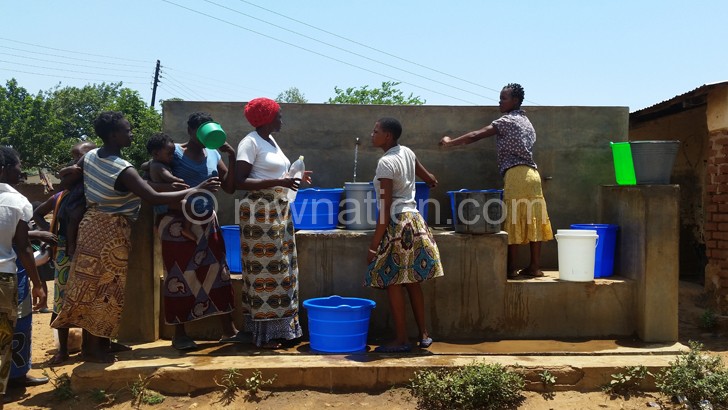European Bank blacklists BWB
European Investment Bank (EIB) has blacklisted Blantyre Water Board (BWB) from being a recipient of financing from the institution after an audit revealed irregularities ranging from fraud to poor documentation of project funds.
Prior to making its verdict, EIB, which has since asked BWB to begin repaying the eight million euro (about K6.6 billion) loan, sought an explanation from BWB on some of the irregularities rejected by the bank.

In an interview yesterday, BWB acting chief executive Henry Bakuwa denied receiving any communication on the project from EIB, including its existence, saying he learns about new development on the said projects through the media.
“I have heard most of the issues in the media. I don’t know anything about that. Please favour me with the e-mail you were referring to,” wrote Bakuwa in a mobile phone text message.
However, in all the communication, which The Nation has seen, Bakuwa has been the main addressee in his capacity as director of finance and administration alongside former chief executive Andrew Thawe.
Reads a recent letter, dated August 10 2016 addressed to Thawe and Bakuwa, and copied to Secretary to the Treasury Ronald Mangani and EU Delegation to Malawi, Giorgio Pasqualucci and Mr Harald Scholzel: “In our view, your response is insufficient as it does not provide new elements that would change the key findings and conclusion of the Proactive Integrity Review [PIR].
“We have, therefore, concluded that the project expenditures related to the cost of construction of water kiosks are ineligible for EIB/EU financing. Shortly, you will receive a calculation of the financial impact of this decision.
“In the future, to become an eligible institution for any EIB financing, BWB will be required to prove that the numerous control and organisational deficiencies by this PIR have been effectively remediated.”
Treasury spokesperson Nations Msowoya was not available for comment.
However, in an earlier interview on the feasibility of the prepayment arrangement, Msowoya said government hoped the situation would not come to that.
He said: “As Treasury, if they were to ask for their money back immediately, it would be a problem because the money is not in this year’s budget and it would be difficult for us to pay back, that is why we are hoping there would be an understanding between the parties involved.”
In 2009, BWB was given the funds under the Malawi Peri-Urban Water and Sanitation Project whose objective was to provide safe drinking water to 723 000 additional people through 735 kiosks and basic sanitation to 468 000 people in low income areas of Blantyre
EIB commissioned a PIR of the inspectorate general of the bank, almost a year ago after BWB failed to explain on some of the issues which were raised.
According to the report, there was absence of original bid documentation, noting that 50 percent of the procurements examined were not supported by original bid submission documentation. BWB employees were also reported to have been unable to trace and locate all documents for all the procurement files requested.
On strong indications of collusion, EIB found that bidding documents revealed similarities in the submissions of two successful suppliers and that the bid submission documents provided by the two were fabricated; hence, should not have been successful.
The loan had a maturity period of 33 years, including a grace period of 10 years.
EIB gave the loan to BWB in 2009 with a maturity period of 33 years, including a grace period of 10 years but because of the bank’s concerns of mismanagement of funds, it has asked the board to start prepaying the loan before the actual commencement dates.
A few months ago, the World Bank asked Malawi Government to refund K400 million for misprocurement of project components in a Financial Reporting and Oversight Improvement Project which was meant to strengthen systems with the Ministry of Finance, Economic Planning and Development to avoid a repeat of Cashgate.
Early this year, World Bank asked the Ministry of Agriculture, Irrigation and Water Development to refund K2.1 billion in outstanding advances for the Agriculture Development Programme Support Project (ADP-SP).
In January 2015, the World Bank also asked government to reimburse K32.9 million which was meant for Local Development Fund (LDF)- supported Public Works Programme but was suspected to have been mismanaged at Dowa District Council.





